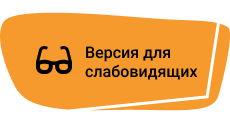ПЛАН УРОКА
АНГЛИЙСКОГО ЯЗЫКА
Тема урока:
План урока
“How to Be Healthy”
Цель урока:
- свободное владение изученными лексическими единицами при выполнении заданий
Задачи:
Образовательные:
- формировать умение употреблять изученную лексику в речи
- формировать навыки аудирования
Развивающие:
- развивать коммуникативные навыки
- развивать умение работать в группе
- развивать потребность в дальнейшем самообразовании на основе
обучения английскому языку
Воспитательные:
- воспитывать бережное отношение к здоровью
- воспитывать культуру общения
Методы: вербально-графический и коммуникативный
Ход урока
Good morning! I’m very pleased to see you at the lesson. Today we are going to have a competition on the topic “How to be healthy”. And two teams will be competing. We’ll listen to an interview with an old man who tells about his lifestyle, will read and do some other things. You will be also able to give advice to other people. So, let’s start our lesson.
1. Captains of the teams come here and introduce yourselves.
2. Here is the first task for you. Name healthy and unhealthy habits of modern life.
Режим работы G1 – G2.
3. The second task is to put the letters in the right order to make up words and word combinations connected with the topic.
|
• t o s i e b y • p e k e t i f • k n a g t i g u r s d • l o f w o l a e t i d • e b c i t s i m i p o • o d a v i s e s r t s • o l e s o i h w t g e • g o n g i g j • p s h i c y l a n i t a i t c v i y • c t o h c a i l e s y t e i l f Answers: obesity, keep fit, taking drugs, follow a diet, be optimistic, avoid stress, loose weight, jogging, physical inactivity, chaotic lifestyle 4. And now brush up your vocabulary. Match verbs 1-11 with phrases a-k to form collocations connected with a healthy lifestyle. There may be different solutions possible.
6. Read the following leaflet giving advice on leading a healthy life. Some phrases have been left out of the text. Choose from phrases A-H below to complete the gaps. |
Answers:
7. You are going to hear a radio interview with an elderly man. Listen to the text carefully and try to catch its idea.
Which of sentences 1-8 do you think are true and which are false?
1. Mr. Sinclair is going to celebrate his 100th birthday soon. (T)
2. Mr. Sinclair is in perfect shape. (T)
3. Mr. Sinclair is crazy about having a healthy lifestyle. (F)
4. When he was young, Mr. Sinclair took regular exercise. (F)
5. Most of his brothers and sisters lived for a long time. (T)
6. Most of Mr. Sinclair’s brothers and sisters had health problems. (F)
7. Mr. Sinclair believes it is important to be optimistic. (T)
8. Mr. Sinclair has been smoking for many years. (F)
So, our lesson is already over. Did you like it? What did you learn at the lesson?
Now the bell has gone. Thank you for the lesson. Good-bye.
